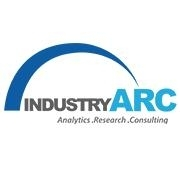Affective Computing Market Estimated to Reach $90.9 Billion by 2026
Global Affective Computing Market is estimated to reach $90.9 billion by 2026 and is expected to grow at a CAGR of 22.8% during the forecast period from 2021 to 2026. The affective computing platform enables a computational device to sense and responds in real-time through artificial emotional intelligence or emotion AI, a user’s non-verbal emotional cues, using video, gesture and moment, physiology and other behavior communicate to the interface. Day-by-day increase demand for virtual assistants, advancement to detect the counter fraudulent activities, and enhanced security in the automotive and banking sectors have contributed ample amount of growth to the overall active computing market. The camera is one of the critical components in the overall affective computing using the application, is estimated to be the fastest-growing segment during the forecast period, and helps to support the affective computing making commercial facilities, public place, and government agencies.
Affective Computing Market Segment Analysis – By Vertical
Healthcare and life science segment are expected to grow at the highest CAGR of 25.3% during the forecast period. The healthcare segment has the potential and having more advanced applications for affective computing. Healthcare companies are focusing on innovative developments that affecting the affective computing market, which is majorly focusing on medical care professionals, majorly focusing on advanced technology that is expected to help the medical professional to the mental condition of the various patients through artificial emotional intelligence or emotion AI.
Additionally, different healthcare and medical device companies are majorly focusing to develop advanced patient monitoring devices that are mostly used to detect facial recognition through passive sensors to monitor the patient. Empatica is one of the prominent companies in the healthcare industry, which offers wearable effective computing devices for healthcare applications. The company is currently focusing to expand its operation across the globe mainly the U.S., and Europe to serve better to its end-user customers.
Affective Computing Market Segment Analysis – By Component
The affective computing market is classified into hardware and software segments. Speech recognition sub-segment is currently dominating the software segment for the affective computing market with a share of 54% of the software market in 2020. Affective computing offers to explore emotion recognition from continuous speech and recommend a real-time speech emotion recognition system. This affective computing system comprises of voice activity detection, speech recognition, and signal pre-processing future extraction, emotional classification through artificial emotional intelligence ro emotion AI, and statistical analysis of emotion frequency. This speech recognition system is capable of investing in the application of the developed real-time speech emotion system in online learning.
Request for Sample Report @ https://www.industryarc.com/pdfdownload.php?id=500867
Report Price: $ 4500 (Single User License)
Affective Computing Market Segment Analysis – By Geography
North America region dominated the global Affective Computing market with a share of more than 32.8%, followed by Europe and APAC in 2020. North America is one of the prominent regions to adopt technological advancement include artificial emotional intelligence or emotion AI on an extensive scale. Continuously improved infrastructure for AI in the North American region is consists of mature infrastructure required for deployment of affective computing. The increasing adoption rate of robotics in this region is one of another factor that penetrates the adoption and growth of affective computing market.
Affective Computing Market Drivers
Enabling Communication of User Emotion
With the help of affective computing, people are expressing emotion to the machines, but the machines do not recognize this naturally. Emotion communication requires significant computing capability from the send and receive end. Various companies are engaged in developing building tools to facilitate deliberate emotional expression by people and allow the machine to recognize patterns for such type of expression. With the help of an affective computing system, this emotion can be sensed by interrupting the user for feedback. Various organizations are exploring multi-modal means of emotional communication. Current recognition rates are up to 81% in automatically detecting and recognizing, which of multiple emotions a hum being expressed through four physiological channels that help the affective computing system to perform properly.
Building tools to develop social emotional skill
Different associations and companies are investing in research and developments to have severely impaired social-emotional skills have sometimes expressed that they love communicating by computer. The computers are allowed for the little transmission of non-verbal affective information and help level the playing field for then to communicate with non-autistics. With the help of advanced technology such as artificial emotional intelligence or emotion AI, companies developed a system that is aimed at helping young autistic children learn to associate emotions with expressions and with a particular situation. These advanced building tools help to develop social-emotional skills for the affective computing market
Affective Computing Market Challenges
Modeling is a major challenge for Affective Computing
The artificial intelligence includes machine learning associated with the model building process problems associated with emotional mapping. Companies are facing the effect of emotion on decision making and behavior and the majority of these data were collected in a highly artificial lab environment. Additionally, within the research laboratory, much disagreement exists regarding the types of mechanisms that mediate the effects of emotions, to the extent that attempts have even been made to characterize this mechanism through artificial emotional intelligence and emotion AI. So companies’ need to focus on these issue associated with while doing the model building for affective computing.
Affective Computing Market Landscape
Technology launches, acquisitions, and R&D activities are key strategies adopted by players for the Affective Computing market. In 2018, the market of Affective Computing has been fragmented by the top five players accounting for around 28% of the market share from the global market. Major players in the Affective Computing market are, Apple Inc., Google Inc., Qualcomm Inc., and Microsoft Corporation, Elliptic Labs, Intel, Cognitec Systems, Pyreos, IBM, SightCorp among others.
Acquisitions/Technology Launches
In June 2019, Microsoft Corporation has launched the introduction of four new games eyes first games on Microsoft windows store for Windows, includes Tile Side, Double Up, Match Two and Maze. These games are specially made for the people those are speech and mobility disabilities and these games are powered by Windows 10 eye tracking APIs and can be used with or without Windows 10 Eye Control.
Key Takeaways
North America held a major market share of more than 32% in 2020 for the affective computing market, majorly dominated by the U.S. North America is one of the promising regions for some of the most active research machine intelligence and Natural language understanding organizations, engaged in developing technologically advanced computing devices.
The speech recognitions software solution is one of the promising sub-segment under the software segment. These analytics software are used to provide different results per the requirement of users. This analytical software majorly compromises of neural analytics and predictive analytics software includes different programming languages such as R and Python that helps to make the netter prediction for the affective computing system.
Artificial Intelligence in healthcare has been growing and to have a significant effect to drive the particular application. Babylon-Health is one of the major companies that focuses on healthcare application to offer better services to their customers.
Related Reports:
A. Edge Computing Market
https://www.industryarc.com/Report/17939/edge-computing-market.html
B. On-Board High Performance Computing System Market
https://www.industryarc.com/Report/18591/on-board-high-performance-computing-system-market.html
For more Information and Communications Technology Market reports, please click here
About IndustryARC: IndustryARC primarily focuses on Cutting Edge Technologies and Newer Applications market research. Our Custom Research Services are designed to provide insights on the constant flux in the global supply-demand gap of markets. Our strong team of analysts enables us to meet the client research needs at a rapid speed, with a variety of options for your business. Any other custom requirements can be discussed with our team, drop an e-mail to [email protected] to discuss more about our consulting services.
Media Contact
Company Name: IndustryARC
Contact Person: Mr. Venkat Reddy
Email: Send Email
Phone: (+1) 970-236-3677
Address:Madhapur
City: Hyderabad
Country: India
Website: https://www.industryarc.com/



